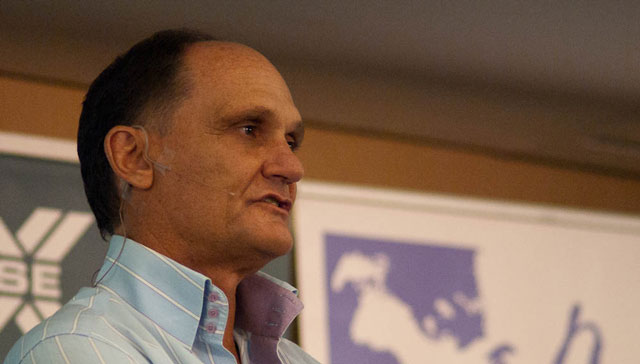
After considerable debate about this list between TechCentral’s editors, we have settled on our South African Newsmakers of 2012. These are the individuals, in ascending order from five to one, who we believe were the most newsworthy in the technology and telecommunications space this year.
Also, check out our International Newsmakers of 2012 list, which we published earlier in the week.

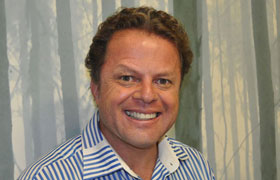 John Holdsworth
John Holdsworth
Tenacious Englishman John Holdsworth made the headlines repeatedly this year thanks to his plans to launch a mobile virtual network operator called AppChat.
Reunert, the JSE-listed company that bought ECN Telecommunications — the company Holdsworth founded — for R172m in 2011, successfully sued Holdsworth in court claiming he breached his restraint-of-trade agreement and knew the company planned to enter the mobile voice market. The company also claims he solicited staff unlawfully from ECN.
Despite having his application for leave to appeal turned down by the high court, Holdsworth says he has documents that exonerate him and that he intends to go ahead with launching AppChat in the new year.
Holdsworth made a splash in the mobile industry in years gone by leading the lobby for reductions in wholesale mobile call termination rates — the fees mobile operators charge to carry calls onto their networks. He’s said he intends to lobby the industry regulator and parliament about other interventions. — CW

 Alan Knott-Craig
Alan Knott-Craig
It’s been a tumultuous year for Alan Knott-Craig. In October, he resigned as CEO of mobile social network Mxit and left World of Avatar, the investment vehicle he founded and which had bought Mxit little more than a year earlier.
Shortly after Mxit changed hands, Knott-Craig famously said the company had a one-year window of opportunity to fend off the onslaught of rival services and improve and expand its offerings. He moved quickly to consolidate the business, merging four separate offices into one, closing divisions and retrenching staff.
Mxit made further retrenchments this week, and another World of Avatar property, music discovery service Boom.fm, shut shop.
Knott-Craig, who formerly headed up Internet service provider iBurst, has clashed with executives before over his management style, which some have described as “unconventional”. It’s just such a clash — with former FirstRand bigwigs Paul Harris and GT Ferreira — that’s rumoured to have prompted his abrupt departure from Mxit.
Though he hasn’t said anything about his plans for next year, there’s little doubt Knott-Craig will remain involved in South Africa’s technology sector, one way or another. — CW

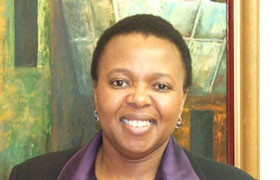 Nombulelo Moholi
Nombulelo Moholi
Outgoing Telkom group CEO Nombulelo Moholi had a big challenge on her hands from the outset when she took the top spot at the fixed-line telecommunications operator in March 2011.
Given declining fixed-line subscriptions, ageing network infrastructure and a tumbling share price, she did well by leading a project to upgrade the company’s last-mile network and build a strong management team.
Nevertheless, 18 months after taking the top post, Moholi announced she was leaving the company, despite having downplayed rumours of her planned departure only a couple of months earlier.
Given that Telkom’s biggest shareholder — government, and specifically communications minister Dina Pule — had appeared to have lost faith in Moholi, she did the principled thing by stepping down.
Balancing government’s objectives with shareholders’ conflicting interests was never going to be easy, but this is unfortunately the task that faces any Telkom CEO. While Telkom courted Korea’s KT Corp over a possible equity deal, cabinet ultimately canned it. Similarly, when it came the company’s annual general meeting, Pule bucked expectations and voted against the election or re-election of four directors. The interference must have become untenable for Moholi, who, it must be said, won’t have a hard time finding a top job elsewhere. Our guess is she’ll opt for a company where government isn’t a major shareholder. — CW

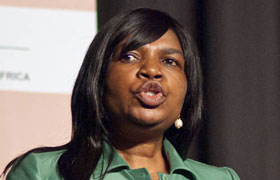 Dina Pule
Dina Pule
Communications minister Dina Pule has certainly grabbed the headlines this year, but usually for all the wrong reasons.
Deputy under former minister Siphiwe Nyanda, Pule got the top post after the late Roy Padayachie was redeployed as minister of public service & administration in October 2011.
Despite making all of the right noises early on about the importance of fast-tracking the migration to digital broadcasting, allocating spectrum for broadband services — particularly in rural areas — and turning Telkom around, Pule has moved dreadfully slowly and has become embroiled in scandal.
First cabinet pulled the plug on the proposed deal between Korea’s KT Corp and Telkom, apparently at her recommendation — despite the discussions having been initiated by her predecessor. Then she became embroiled in allegations that she and her alleged romantic interest, Phosane Mngqibisa, misused sponsors’ funds earmarked for the ICT Indaba in Cape Town. The issue is now being scrutinised by the public protector.
Meanwhile, the deadlines for the migration to digital terrestrial TV continued to be missed, with Pule being taken to court by free-to-air broadbaster e.tv after she appointed state-owned Sentech to administer the control mechanisms for the set-top boxes needed for digital TV — a move e.tv argues the minister lacked the power to make.
Finally, after the KT deal was scuppered, Pule was tasked with presenting three options for the future direction of Telkom to cabinet. Nothing tangible appears to have flowed from that.
We hope Pule makes our newsmakers list again in 2013, but this time for making real progress with her portfolio. Goodness knows, her inbox is full of important work that needs doing yesterday. — CW

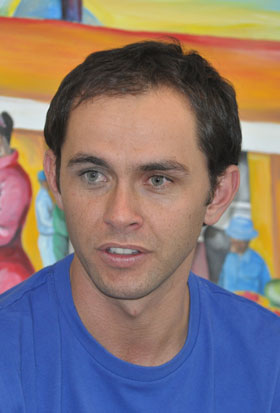 Alan Knott-Craig
Alan Knott-Craig
Choosing TechCentral’s South African Newsmaker of 2012 was not difficult. Cell C CEO Alan Knott-Craig has been making headlines all year –and winning consumer kudos in the process – as he wages a war for market share against the company’s bigger rivals.
His return after three years away has certainly livened up the industry and got the top dogs at Vodacom, the company he once led as founding CEO, apparently quite jittery.
This was evidenced by the bigger operator’s ham-fisted efforts at reacting to Knott-Craig’s decision to cut call tariffs to 99c/minute on per-second billing which got Vodacom into hot water with the regulator, the Independent Communications Authority of South Africa.
Vodacom also hacked the price of calls to many international destinations to 89c/minute (with a R5/month opt-in fee) in reaction to Cell C’s decision to cut the price to 99c (with no monthly fee). Knott-Craig reacted days later with a tariff of 85c/minute, again without an opt-in fee.
Knott-Craig, never afraid to speak his mind in media interviews, even if (especially if?) it means ruffling feathers, has certainly provided plenty of quote-worthy material for journalists during the year. From suggesting that Telkom’s business model is not sustainable to accusing his bigger rivals of specialising in product complexity, he’s certainly kept things interesting and entertaining.
It’s still a little early to know if Knott-Craig’s price-busting and other strategies are paying big dividends for Cell C. So far, the company has revealed only that gross additions have ticked up nicely. It hasn’t shared the important net additions figure — something we’d like to see it do in 2013. But in terms of getting Cell C noticed and talked about by consumers, Knott-Craig has certainly done that. And he’s very clearly our well-deserved South African Newsmaker of 2012. — DM




